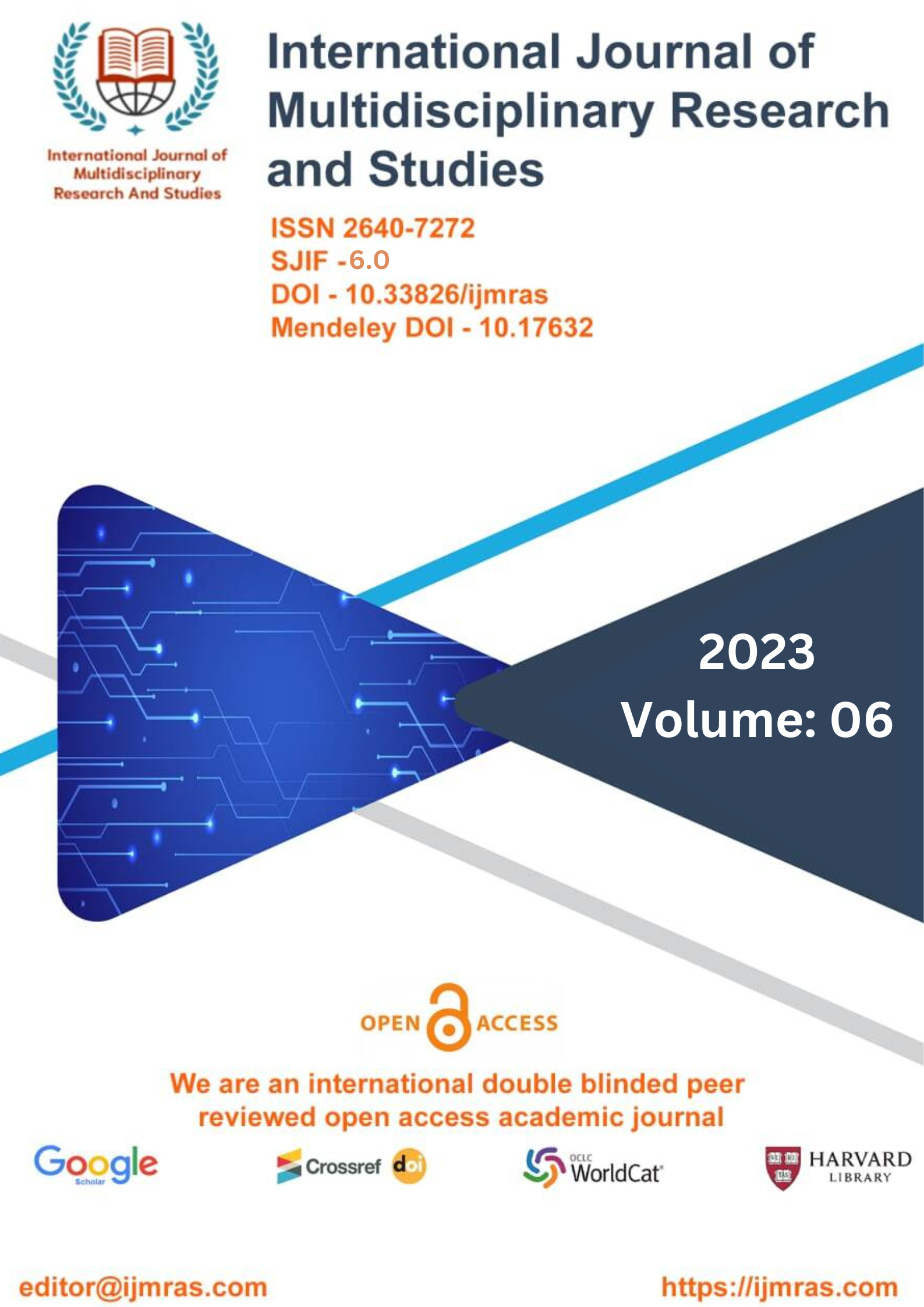“Factors Influencing Picky Eating in Toddlers in the Work Area of Madising Na Mario Community Health Center, Parepare City”

Abstract
Due to the considerable and quick growth and development that takes place during this time, the early years of a child's life are frequently referred to as the "golden period." Children are still incredibly reliant on their caretakers during this time to provide for their basic requirements, including food. Picky eating is a commonly encountered feeding problem in children during this developmental period. Several factors influence this condition. Understanding these factors can help parents and healthcare providers develop effective strategies to improve a toddler's eating habits and promote healthy growth and development.
The objective of this study is to examine the relationship between picky eating and variables including appetite, maternal parenting style, infant and toddler feeding routines, and toddler psychology, using an analytical survey with a cross-sectional design. The results reveal a significant relationship between parenting style and feeding practices with picky eating in toddlers. However, there was no significant association between appetite and toddler psychology with picky eating. In conclusion, implementing a continuous parenting style model, and paying attention to both the parents and child's feeding practices, can help to ensure that the child's nutritional needs are met and prevent the occurrence of picky eating.
Keywords
Picky eating, feeding practices, eating behavior, parenting styleHow to Cite
References
Adriani, M. and Kartika, (2011). Pola Asuh Makan pada Balita dengan Status Gizi Kurang di Jawa Timur, Jawa Tengah dan Kalimantan Tengah, Tahun 2011. Buletin Penelitian Sistem Kesehatan, 16(2), 185-193.
Ainun. (2016). Hubungan Pola Asuh Ibu dengan Perilaku Sulit Makan Pada Anak Usia Prasekolah di Taman Kanak-Kanak Al-Ikhwah Pontianak. Skripsi, Universitas Tanjungpura Pontianak.
Anggraini, I. R. (2014). Perilaku Makan Orang Tua dengan Kejadian Picky Eater Pada Anak Usia Toddler. Jurnal Keperawatan, 154-162.
Arisman, (2007). Gizi Dalam Daur Kehidupan. Jakarta: EGC.
Depkes R.I. (2012). Kebutuhan Gizi Galita. Jakarta: Dirjen PPM & PLP.
Dian Putri, (2012). Gambaran perilaku Picky Eater dan faktor yang melatarbelakanginya pada siswa PAUD Kasih Ananda Bekasi. Skripsi, Universitas Indonesia.
Dinas Kesehatan Sulawesi Selatan. (2010). Pedoman Pelaksanaan Pendampingan Gizi di Provinsi Sulawesi Selatan. Makassar: Dinas Kesehatan Provinsi Sulawesi Selatan.
Dirjen Binkesmas. (2006). Pedoman Umum Gizi Seimbang. Jakarta: Direktorat Bina Gizi Masyarakat.
Enny, (2009). Mengatasi Anak Yang Susah Makan. http://medicastore.com/artikel/257/index.html.
Fedora D.A., (2012). Pengaruh Gaya Pengasuhan Orang Tua Terhadap Karakter Disiplin, Tanggung Jawab, dan Penghargaan pada Anak Usia Middle Childhood. Karta Tulis Ilmiah, Universitas Indonesia.
Hasan, E., Nasir, M., Syamsir, & wajdi, M. (2022). Team Emergency Service Model As a Health Service Management Strategy in Wakatobi District. International Journal Of Multidisciplinary Research And Studies, 05(09), 01–21. https://doi.org/10.33826/ijmras/v05i09.2
Hidayat, A. Aziz Alimul. (2007). Riset Keperawatan dan Teknik Penulisan Ilmiah. Jakarta: Salemba Medika.
Hidayat, A.A.A. (2012). Pengantar Ilmu Keperawatan Anak. Jakarta:Salemba Medika.
Horodynski, M.A. (2010). Low-Income African American and Non-Hispanic White Mothers’ Self-Efficacy, “Picky Eater” Perception, and Toddler Fruit and Vegetable Consumption. Journal of Public Health Nursing, Volume 27 (5).
Judarwanto, W. (2009). Mengatasi Kesulitan Makan Pada Anak. Jakarta: Puspa Swara.
Judarwanto, Widodo. (2005). Pengalaman Penatalaksanaan Kesulitan Makan Pada Anak di Picky Eaters Clinic. Jakarta: EGC.
Judarwanto, Widodo. (2010). Kesulitan Makan Pada Anak. Dalam http://dranak.blogspot.com/2007/02/kesulitan-makan-pada-anak.html.
Judarwanto, Widodo. (2012). Gangguan Fungsi Pencernaan Dan Sulit Makan Dianggap Normal. http://kesehatan.kompasiana.com/ibu-dan-anak/2012.
Karlie, B. K., Michael, R. K., &Karundenge. (2016). Hubungan Pola AsuhIbuDenganPerilakuSulitMakan Pada AnakUsiaPrasekolah (3-5 Tahun) Di Taman Kanak-Kanak DesaPalelonKec. ModoindingMinahasa Selatan. JurnalKeperawatan (e-Kp), 4(1).
Karlie, B.K., Kundre, R., & Karundeng, M. (2016). Hubungan Pola Asuh Ibu Perilaku Sulit Makan Pada Anak Usia Prasekolah (3-5 Tahun) Di Taman Kanak-Kanak Desa Palelon Kec. Modoinding Minahasa Selatan. Ejournal Keperawatan, 4(1).
Kementerian Kesehatan. (2010). Laporan Hasil RisetKesehatan Dasar 2010. Jakarta: Badan Penelitian dan PengembanganKesehatanDepartemenKesehatan RI.
Khasanah, N.A. (2014). Hubungan Sikap Ibu Tentang Kesulitan Makan dengan Status Gizi Anak Usia Prasekolah (3-6 Tahun) Di Desa Wonosari Ngoro Mojokerto. Poltekkes Majapahit, Surabaya.
Krummel, D. A. (2006). Nutrition in women's health. JurnalSains&Teknologi, 7(3).
Kusumawardhani, A., Andarini, S., &Wijayanti, N. P. (2013). Determinan "Picky Eater" (Pilih-PilihMakanan) pada AnakUsia 1-3 Tahun (Studi di Wilayah Kerja Integrated Health Post area of JabonSidoarjo). Hospital Majapahit, 5(2).
Mascola, A. J., Bryson, S. W., &Agras, W. S. (2010). Picky eating during childhood: A longitudinal study to age 11 years. Eating Behaviors, 11(4).
Natsir, M., Abidin, A., Patmawati, T. A., & Wajdi, M. (2022). Eksistensi the Existence of Quarter Life Qrisis Phenomenon in Young Adults on Mental Health Pre-Covid-19 and During Covid-19 in the Community of the City of Parepare. International Journal Of Multidisciplinary Research And Studies, 05(07), 01–09. https://doi.org/10.33826/ijmras/v05i07.5
Nafratilawati, M. (2014). Hubungan Antara Pola Asuh Dengan Kesulitan Makan Pada Anak Prasekolah (3-5 Tahun) Di TK Leyangan Kabupaten Semarang.
Nasrul. (2011). KesulitanMakan Pada Anak. Retrieved from http://www.midewifehomesmine.blogspot.com/2012/07/kesulitan-makan-pada-anak.html
Nurhayati. (2008). RekaCipta Menu Balita dan ImplementasinyadenganPendekatanHolistikSebagaiUpayaMengatasiKesulitanMakan dan KurangGizi pada Balita. Jakarta:
Patricia, V.A. (2012). Proporsi dan Status Gizi Anak Usia 6-24 Bulan yang Mengalami Kesulitan Makan di Semarang. Karya Tulis Ilmiah, Universitas Diponegoro.
Potter, P.A. (2005). Buku Ajar Fundamental Keperawatan: Konsep, Proses, dan Praktik. Edisi ke-4, Vol.1. Jakarta: EGC.
Priyanti, S. (2013). Pengaruh Perilaku Makan Orang Tua Terhadap Kejadian Picky Eater (Pilih-Pilih Makanan) Pada Anak Toddler di Desa Karang Jeruk Kecamatan Jatirejo Mojokerto. Medica Majapahit, Volume 5 (2).
Saraswati, D.P. (2012). Gambaran Perilaku Picky Eater dan Faktor yang Melatar Belakanginya. Skripsi. Fakultas Kesehatan Masyarakat, Universitas Indonesia, Jakarta.
Setiadi. (2007). Konsep dan Penulisan Riset Keperawatan. Yogyakarta: Graha Ilmu.
Soedibyo & Mulyani. (2009). Kesulitan Makan Pada Pasien: Survey di Unit Pediatri Rawat Jalan, Departemen Ilmu Kesehatan Anak.Jakarta: FKUI.
Soetjiningsih. (2013). Tumbuh Kembang Anak. Edisi ke-2. Jakarta: EGC.
Sulistyoningsih. (2012). Gizi untuk Kesehatan Ibu dan Anak. Yogyakarta: Graha Ilmu.
Sunarjo. (2009). Kesulitan Makan Pada Anak. Jurnal Kesahatan Anak. Jakarta: FKUI.
Suparyanto. (2011). Pemenuhan Gizi Pada Balita. Retrieved from http://dr-suparyanto.blogspot.com/2011/10/pemenuhan-gizi-pada-balita.html
Utami, F.B. (2016). Picky Eater Pada Anak Kota: Studi Kasus Anak Usia 3-4 Tahun. Jurnal Keperawatan, Volume 14 (2).
Vina. (2011). Kesulitan Makan dan Cara Mengatasi Anak Sulit Makan. Retrieved from http://rumahkusorgaku.multiply.com/journal/item/35
License
Copyright (c) 2023 M. NATSIR

This work is licensed under a Creative Commons Attribution 4.0 International License.
Individual articles are published Open Access under the Creative Commons Licence: CC-BY 4.0.




